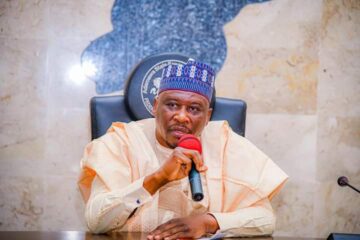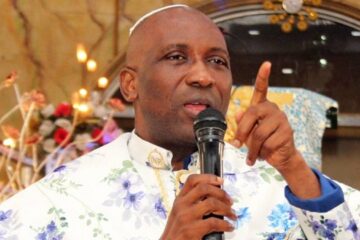
Tinubu
The All Progressives Congress presidential candidate, Bola Tinubu, has promised to end Nigeria’s fuel subsidy regime if elected in 2023.
He made the diclosure in his manifesto released on Friday.
Accoridng to PUNCH, Tinubu said that apart from phasing out fuel subsidy, his administration will accelerate full implementation of the Petroleum Industry Act, implement additional favourable policies to attract investment in Deepwater assets within 6 months.
According to him, I will ensure the stability of petroleum product supply by fully deregulating the downstream sector and ensuring that local refinery capacity will meet domestic consumption needs.
He said, “We shall phase out the fuel subsidy yet maintain the underlying social contract between government and the people. We do this by dedicating the money that would have been used on the subsidy to fund targeted infrastructural, agricultural and social welfare programs ranging from road construction to boreholes, public transportation subsidies, and education and healthcare funding programs. In this way, the funds are more directly and better utilised to address urgent social and economic needs.
“Our planned approach will not only mitigate the price effects of deregulation but will also result in the significant expansion of public infrastructure and improvement of public well-being.
“Subsidy removal and deregulation are, however, only part of the solution. To further increase our refining capacity, we shall focus on the rehabilitation of the nation’s refineries and shall consider, as a model, the joint venture partnership arrangements implemented by other leading oil-producing states and global petrochemical firms.”
He added, “We will hasten the implementation of the Petroleum Industry Act and implement favourable policies to stimulate investment in the deep-water assets such as encouraging negotiations regarding signature bonus payment and/or deferral of the payment post development, royalty reliefs amongst others.”
President Muhammadu Buhari had last year said he would remove fuel the subsidy following advice by the International Monetary Fund, and the World Bank.
In its place, the government said about 40 million poor Nigerians would be paid a N5,000 monthly stipend for transportation.
The World Bank had projected that Nigeria would spend about N4tn on petrol subsidy in 2022, as oil marketers also stated that the amount could rise to N6tn going by the rise in the price of crude oil.











